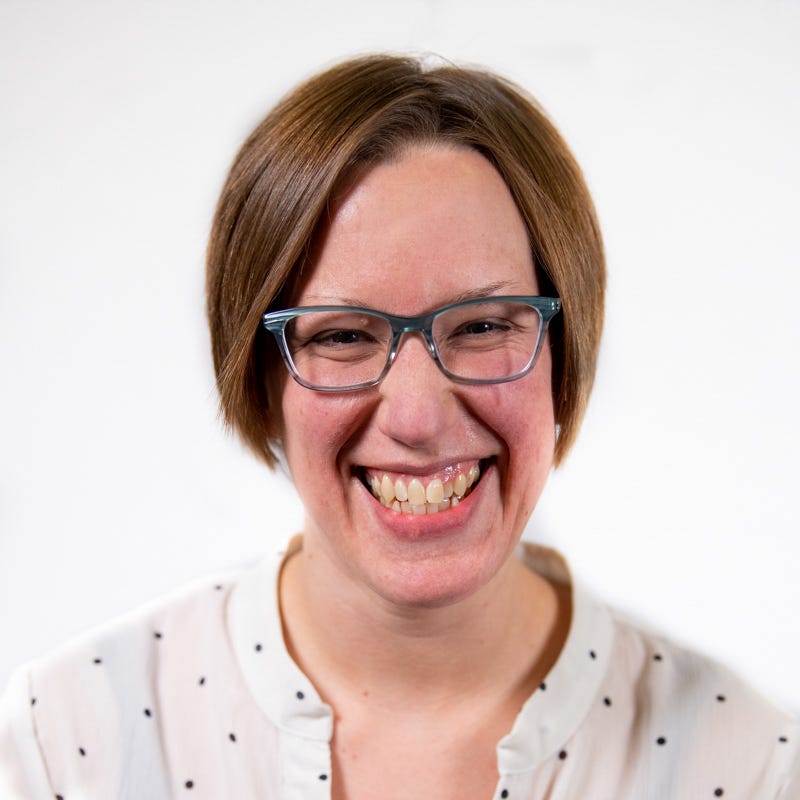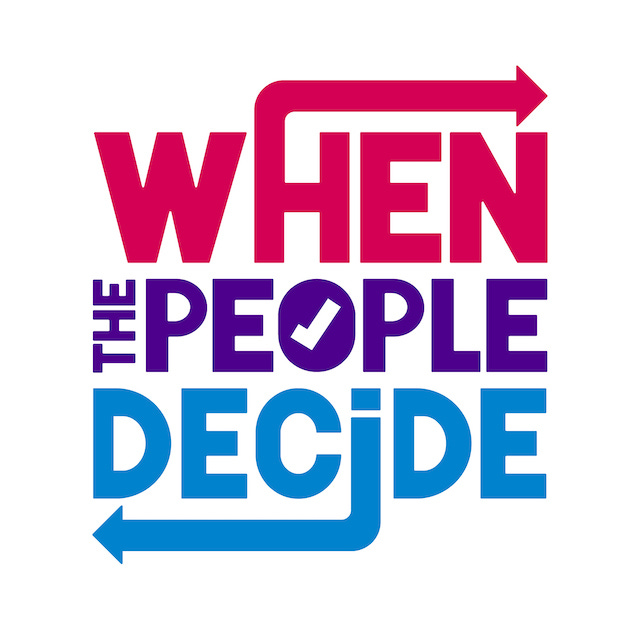Jenna Spinelle is a writer and podcaster who tells stories that inspire hope and change in trying times. She hosts and produces the Democracy Works podcast and the narrative series When the People Decide, both productions of the McCourtney Institute for Democracy at Penn State. She teaches courses on news writing, podcasting, and the creator economy at Penn State’s Donald P. Bellisario College of Communications. Her writing has appeared in outlets including Time Magazine, Inside Higher Ed and Current, a trade publication covering public media.
To learn more about Jenna’s show When the People Decide, be sure to check out their website, which includes helpful resources about democracy. Also, read Jenna’s curation for Sounds Like Impact called ‘Building Civic Power.’
To get more curations and stay up to date on the latest interviews, hit subscribe below; it’s free!
Like others I’ve interviewed before you, you have a day job that’s not just podcaster. What do you do as a communications specialist at the McCourtney Institute for Democracy?
Broadly speaking, my job is to promote the work of the Institute and the faculty and students we support. I spread the word about the speakers we bring to campus, the research our faculty and students are doing, and the awards we give to people doing work to advance democracy. I also host and produce the podcast Democracy Works with my colleagues and supervise a podcast network called The Democracy Group.
How did you develop an interest in government that led you to what you do today?
My first jobs were in local news so I became very familiar with how organizations like school boards and city councils operated — and the important role they play in their communities. I also spent a lot of time interviewing both elected officials and everyday people and noticing the gaps between them. I can draw a direct line from these experiences to the stories I tell on When the People Decide.
Though you host a show about democracy in general, When the People Decide season 1 was specifically focused on “how everyday people are using ballot initiatives to create political change by bringing issues they care about directly to their fellow voters.” How did you arrive at this being the focus of the show?
I’d learned about some of the stories I told in season 1 during my time producing Democracy Works and through the rest of the McCourtney Institute’s work. I knew there were compelling characters and, in many cases, a David v. Goliath storyline that would be perfect for the narrative audio format. During the pandemic, I found myself with extra time on my hands and decided to give it a go! I checked out every book I could find about ballot measures in the Penn State library and discovered even more stories along the way. One in particular that I love is the story of Cincinnati’s LGBTQ ballot measures in the 1990s and 2000s, which I talk about in season 1 episode 3.
Season 2 you shifted a bit and looked at “strengthening democracy at the local level through reforms like participatory budgeting, lottery-selected panels, and the growth of civic media.” You are very knowledgeable about how democracy is supposed to function, but what is one thing that surprised you from the season?
The thing that surprised me the most from season 2 was how dedicated local government leaders are to their jobs and the people they serve. The people I interacted with during my days in local news were not always as dedicated or helpful to the community. The more work I did on the second season, the more I learned that the unhelpful, unhappy folks appear to be the outliers, not the norm.
On a scale of 1-10, where would you say your belief in our U.S. democracy was before you started When the People Decide?
7
Where would you say it is today?
8
I’m an optimist by nature and hearing stories of people who are making political change happen has made my faith in our democracy and the people who live in it even stronger.
The day before this interview was published we completed another election cycle. I’m not going to ask you to predict the future, but prior to election day, what was your sense of what voter engagement and turnout would be like in 2023? What factors contribute to that?
One thing I pay attention to a lot given my role is the voting rate among college students. For a long time it was … not great to say the least. But thanks to the work of organizations like Students Learn, Students Vote and the ALL IN Campus Democracy Challenge, the turnout increased across the country. Off-year elections are always tough to get people’s attention, especially busy college students, but I suspect that issues like abortion, student debt, and climate will continue to drive young people to the polls to vote in state and local elections.
And, of course, as someone who is kind of obsessed with ballot measures, I’m always watching the results of what’s on the ballot in a given year. The most talked about ballot measure this year is Ohio’s Issue 1, which would establish a constitutional right to reproductive decisions. I’m also interested to see how ballot measures on ranked choice voting perform at the local level.
I don’t believe that I am alone in thinking that belief in democracy is in trouble, and not without reason. January 6th–the aftermath of the 2020 elections, greater restrictions on voting rights, the increase in reproductive health restrictions across different states, and that’s not all. If you could leave a listener or prospective listener with one thing about what makes you believe, what would you tell them?
And if there is a particular episode from your series that you feel like further supports your point, please share:
I don’t disagree with any of the things you said, and they are definitely very real things we should pay attention to and be aware of. But if I’ve learned anything from two seasons of When the People Decide, it’s that it is possible to effect change in your city or state. I’ll point to two episodes that illustrate this: Season 1 episode 1 about the campaign to change redistricting in Michigan, and season 2 episode 6, which features Eric Liu of Citizen University talking about the value of taking a leap of faith and getting involved to work on an issue you care about — even if you’re not sure how things will turn out in the end. And the truth is, it might not work out because of the threats you identified. But things definitely won’t change if you don’t step up, get involved, and make your voice heard.
🎤 Pass the Mic
If you could pass the mic to someone about a social issue you care about, who would it be and what would they talk about?
I already passed the mic to Mike Rispoli from Free Press in season 2, episode 5. But I would love to pass it to the organization again to lift up the work they are doing to give people a voice in the media they consume. I also recommend checking out the Roadmap for Local News for more information on the vision for journalism that serves democracy, instead of serving as a mouthpiece for people who already have political or economic power. This work encompasses two of the things I’m most passionate about, journalism and democracy!
Interested in learning more about civic engagement? Check out this guest curation from the team behind Girl and the Gov podcast.








